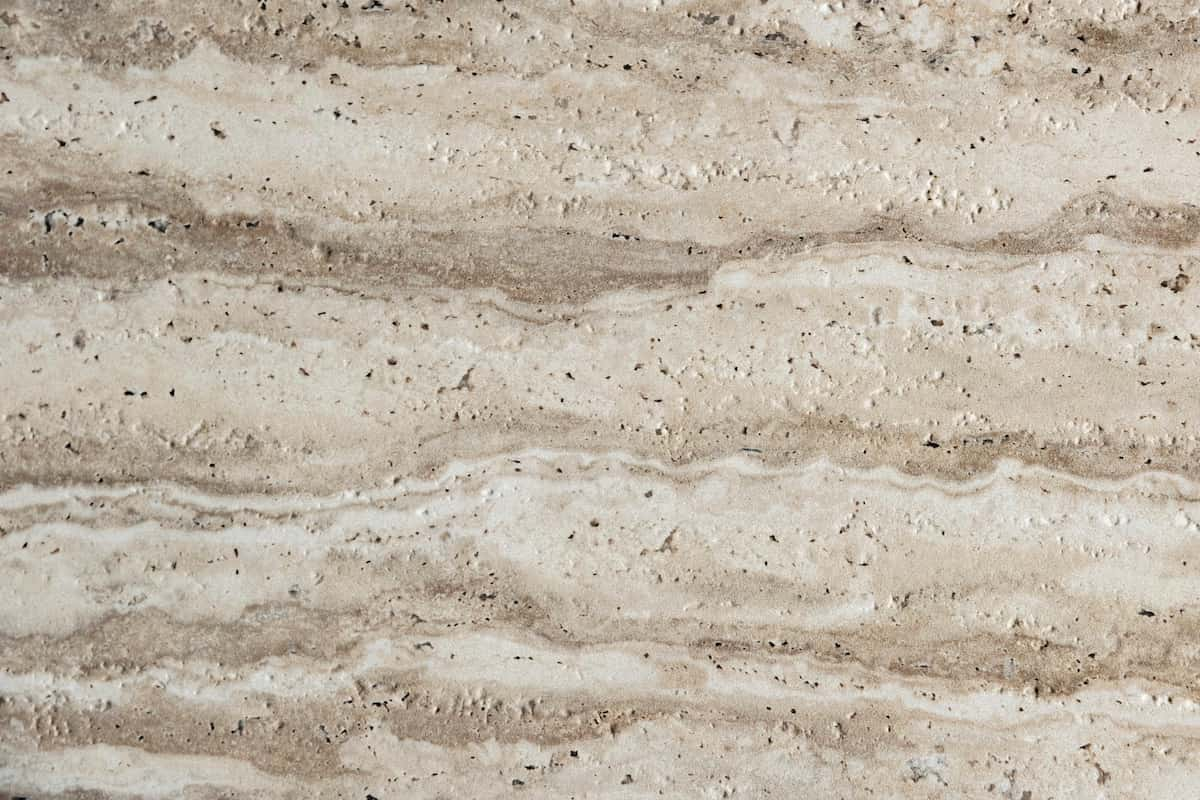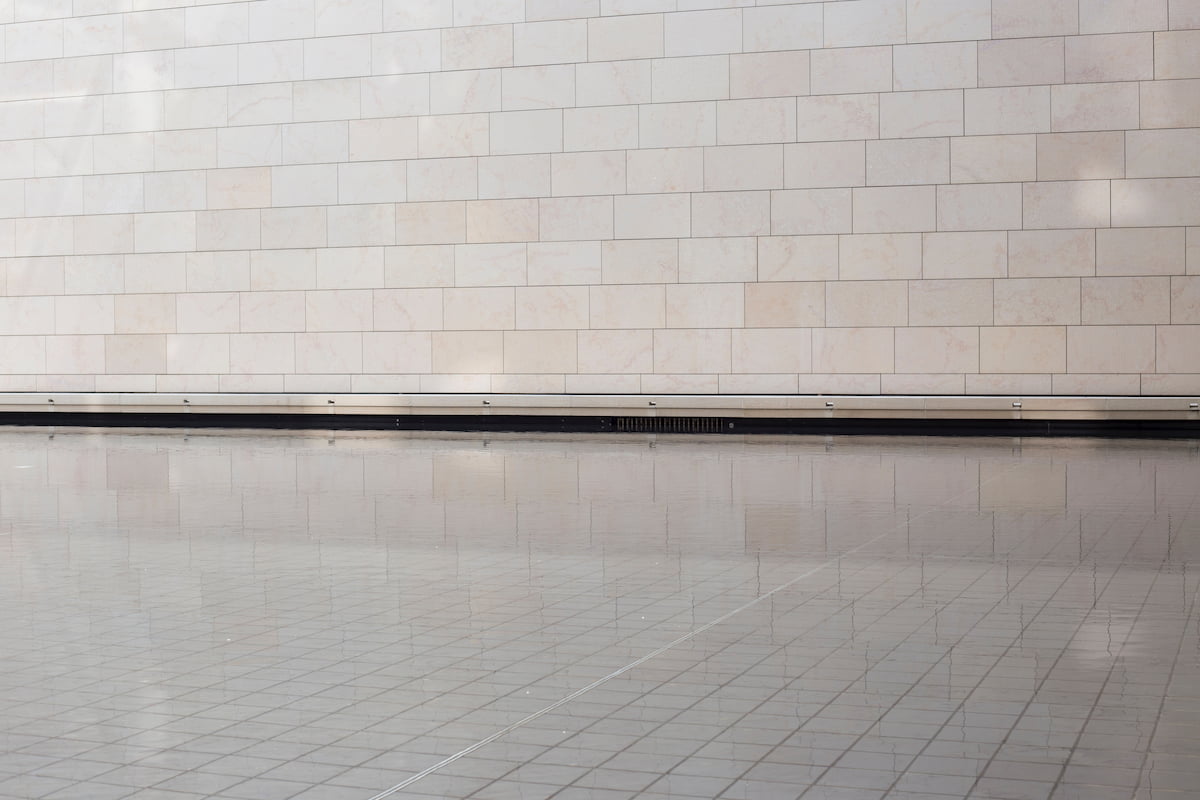If you have not yet heard about travertine, we have prepared a blog post about it so you can know everything about it, including its areas of use and fundamental features. Hence, you can decide whether travertine is a suitable option for your home decoration.
First of all, let us talk about what travertine is. Travertine is a natural stone that develops around some types of mineral spring deposits that give this limestone a unique appearance. Being a versatile stone, travertine has various finishes, which are polished, honed, brushed, and tumbled. Here are the features of each finish:
-
Polished: Polished travertine has a smooth and glossy surface, giving it a shiny look.
-
Honed: Honed travertine has a smooth yet matte finish without shine.
-
Brushed: Brushed travertine reflects the stone's natural look, providing a rustic and sophisticated look.
-
Tumbled: Tumbled travertine has a high-textured finish, but this one has softened edges.

Travertine is a famous stone, especially in architecture. Even the Colosseum in Rome and Getty Center in Los Angeles are two important buildings that reflect the beauty of travertine stone. Being mostly found in Italy, Turkey, Iran, Mexico, Peru, and China, travertine is also commonly used for interior home decoration. Here are the areas where travertine can be used:
-
Countertops: Extra caution and regular maintenance are required if travertine is used for kitchen counters.
-
Backsplashes: Using travertine for backsplashes is a great way to highlight the natural beauty of the stone.
-
Floors: Travertine with the honed finish is the primary choice for interior floors.
-
Fireplace Surrounds: Using travertine for fireplace surrounds enables you to draw attention to the fireplace.
-
Shower Walls: You can add beauty to your bathroom by utilizing travertine for shower walls.
-
Bathtub Surrounds: Using travertine for bathtub surrounds will bring light to your bathroom.
-
Pool Decks: Travertine is slip-resistant, making it an excellent choice for pool decks.
-
Driveways: You can make a great impression by using travertine for the entrance to your home.
-
Interior Walls: Using travertine for interior walls will help you add a unique persona to your home.
Now that we have shared some general information about travertine, including its areas of use, let us now discuss its advantages and disadvantages so that you can decide whether travertine is compatible with your preferences.

Pros of Travertine
-
Highly Durable: As long as maintained properly, travertine tiles do not crack easily. Moreover, travertine is resistant to water, moisture, and extreme weather fluctuations, making it suitable for both outdoor and indoor installations.
-
Has a Non-Slippery Texture: Travertine naturally has a non-slippery texture, making it a perfect pick for areas like swimming pools, pool decks, bathrooms, and floors.
-
Has Many Color and Finish Options: Travertine has a variety of color and finish options that make it suitable for many areas and different home designs.
-
Has a Unique Beauty: The unique natural beauty of travertine will definitely tempt you to use it to enhance any part of your home visually.
-
Add Real Estate Value: The natural beauty of travertine add a distinctive character and charm to your home, making your property tempting to potential buyers.
-
Adaptable: Travertine is adjustable, meaning it can be used in various places, including inside as well as outside your home.
-
Easy to Replace: It will not be troublesome to replace damaged travertine tiles with the new ones because it is easy to find tiles with a similar appearance. Moreover, it is easy to cut and shape travertine tiles, allowing to fill small and oddly shaped spaces with travertine tiles.
Cons of Travertine
-
Has a Porous Surface: As is the case for many natural stones, travertine has a porous surface, making it more prone to stains and bacterial growth. However, commitment to regular maintenance will help you prolong the life of your travertine.
-
Sensitive to Acidic Substances: Although travertine is a durable stone, it is sensitive to acidic substances like coffee, orange juice, vinegar, and alcohol. The acidic solvent will react with the calcium carbonate of the stone, causing the risk of permanent stain on the surface. Hence, you should clean right after any spill to prevent such troubles.
-
Requires Periodic Maintenance and Care: Since the surface is porous, periodic sealing is necessary to protect the surface from any permanent damage. This way, you can preserve your travertine stone in its best form for a very long time. Moreover, you should also be careful with the cleaning method you prefer and stay away from cleansers with acidic ingredients.
Travertine is a beautiful natural stone suitable for various places. The countless advantages it has makes travertine a tempting choice for those who want to beautify their homes with its distinctive appearance. High End Stone offers high-quality travertine tile and slab options in which you can choose the one that perfectly complements your interior decoration.
